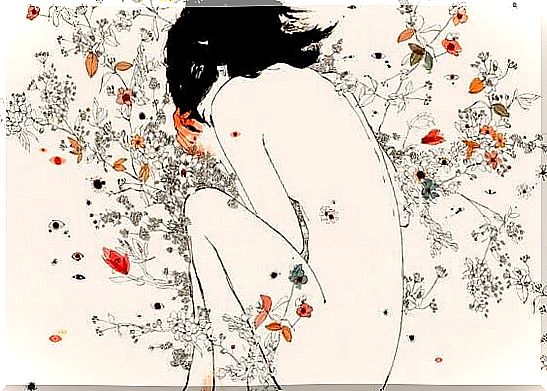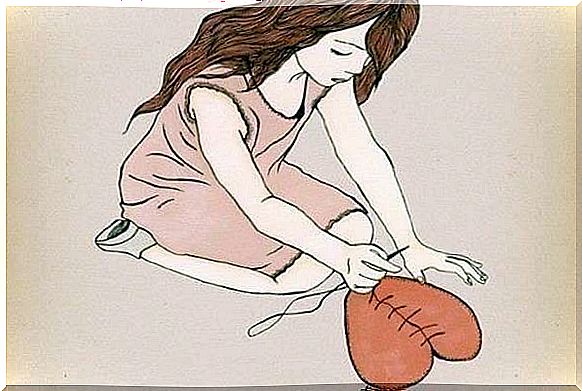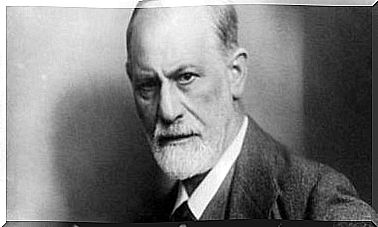It’s Not So Much Love Itself That I’m Tired Of Its Disappointments

We are – piece by piece – a little broken. And we carry with us these cracks and sentimental shards, in the silent hope of completing the unsolvable puzzle of our hearts someday round and sound. Always from the ardent, or otherwise softly smoldering desire, to be loved and loved again. We want to become attached and hooked again, be the apple of each other’s eye again. Unfortunately, past disappointments have burned our fingers and feelers more than once…
It is often said with caution that when we are willing to do something for someone, we may, or even must, expect that person – at some point – to disappoint us. It’s almost as if pain per se is permanently lurking, or inherent in love, in affection and affection. But that too is – fortunately – not entirely true.
After all, our emotional and social brain longs for, sometimes even begs for, the security and safety of a reliable bond of love. That instinctive guarantee is, from an instinctive, evolutionary point of view, equating to survival. Which also explains why we (physically and psychologically) suffer so much from disappointments and setbacks. A tender, poignant chord in us breaks, and gives way. The hot tub of the relationship is draining, and we feel the cold and emptiness like never before.
In certain cases, we may be putting too much pressure on the shoulders of our loved one (to be), or our expectations are too high. Mainly from the need for preventive self-protection: the desire not to be hurt. We want to know, hear, and be confirmed that the person to whom we offer our love will not just abandon us, or suddenly break our intimate connection.
However often it is popularly taken, hardly anyone is – in practice – ready to accept disappointments in and of our (everyday) relationships as the ‘most normal thing in the world’.

Keep giving love generously, despite all the sorrow, and all the pain
We are used to the reassurance that disappointment is not normally the result of our own (inappropriate) behavior. In short: it is not the fault of what we do, but rather what (or how) we think. Disillusionments thus arise from false expectations, which we project onto reality (including our friends, family and loved ones). Of course, this rule doesn’t always hold – there are exceptions. Such as when one of those involved – against all social conventions – takes an extremely harsh, unhelpful or gloomy attitude.
For example, in the context of a good, close friendship, you don’t expect the other person to criticize you behind your back. Or, as an increasingly aging older person, you don’t expect to be abandoned by your children. Whoever loves himself, and believes to be loved, never expects to be mistreated or forgotten by his partner, blood or soul mates.
Some disappointments cut through marrow and bone. Giving sincere love, to yourself, at such heartbreaking moments, is (initially) an almost impossible mission. What you need is (the) time, which with humble needlesticks will weave you back into one braid and stitch, which patiently heals your wounds. To mend the pieces that seem irreparably damaged in the eyes of your mind, even if you don’t have any mental confidence in it.

According to a study by emotional psychologist Ethan Kross, whose findings were published in the Minutes of the Academy of Natural Sciences , rejections, betrayals, and severe disappointment are identically recorded and interpreted by our brains as a traumatic physical impact (such as a fall, blow, or burn).
The neurological area most activated during such accidents is the ‘insula’, or insular cortex, which is directly associated with the experience of pain (stimuli). All this proves that also in the perception of our brain, a disappointment implicitly feels like the breaking of a covenant that offered us protection. It represents the now lost trust we had in something, or in someone. To forgive our hearts again in or after such situations is no easy task. Yet that surrender can be the best medicine to heal your (open) wounds. That your love is greater and greater than any disappointment, and does not even need to be reciprocated, in order to burn steadily.
Never get enough of giving love, and always love yourself
There are disappointments that do not harm your inner self. Which you can simply accept, like a passionate rose grower, who takes her thorns for granted; or the way you drink from that broken-but-glued mug with the sharp edge, because it’s so dear to you. For we recover, forgive the past, and move on with our lives in good spirits—without turning our hearts to stone. With a heart of stone you are bound to fall, ever colder and deeper, into the bottomless pit of fear of failure, depressed vulnerability and claustrophobic self-pity.
Authentic love doesn’t hurt. Unconditional friendship does not betray us. Someone who truly and sincerely loves you might disappoint you once, but never repeat yourself. Therefore, please reflect on the following three art of living strategies, or so-called coping mechanisms, that will help you to overcome such troublesome love affairs with flying colors.

A disappointment gives us, besides a lot of headaches and stabbing in our hearts, also an unshakable feeling of vulnerability. When a person becomes aware of his own fragility in troubled times, the primary remedy is not so much to give love, but to receive it. Or better still: the union of the two, ín and before themselves, the benefit and the benefit of their inner integrity, strength, and intrinsic worth. Such a (brittle) recovery process requires time, attention, and the internal cultivation of the right intention.
In addition to our understanding of time, we must also – from within – stir the proverbial war drum against three particularly basic emotions: anger, impotence and pessimism. Disappointments can knock the ground out from under our feet, leading us to believe that nothing will ever be the same. So don’t give these three bilious warlords a seat around the campfire of your heart, and ban them from your psychological territory.
Realize that you did not deserve what happened to you; but at the same time see crystal clear that you deserve even less to continue to suffer (for life). From this lucid insight, therefore, do not choose resentment and revenge as a daily (emotional) fare. Don’t prescribe yourself bitterness as a narcotic ‘medicine’. Because the side effects will despair and destroy you forever.
Instead, remember this indispensable motto: love yourself – no ifs or buts. Before everything and everyone, choose your-(true)-self. Go beyond all your fears, insecurities, and resentments. Dare to have hope, and – above all – to continue to trust in and on love. Because the only thing that is really worth it in the end is: to sacrifice your love, for the sake of only Love itself. Know, even to your most wounded fibers, that despite all disappointments there are always good people, in the world, and in your vicinity.









